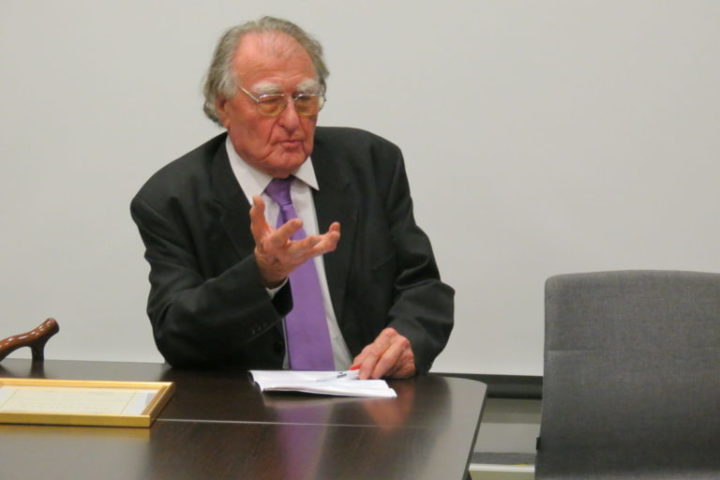June 11, 2024
Obituary: André Desvallées or the DNA of ICOFOM (1931-2024)

André Desvallées or the DNA of ICOFOM (1931-2024)

André Desvallées left us on 5 June and a page in the history of ICOFOM and, more generally, in the history of museology has been turned. André was part of the first generation of museologists, first Jan Jelinek and then Vinoš Sofka, who came together to develop museology from a scientific and resolutely international perspective, embracing all currents of thought. When the ICOFOM was formed, André, who had been Georges Henri Rivière’s assistant and had coordinated the temporary and permanent exhibitions at the Musée National des Arts et Traditions Populaires in Paris, was working at the Inspection Générale des Musées Classés et Contrôlés, in charge of ethnographic museums. It was in this context that he played an active role in setting up the first eco-museums and organising their funding, providing practical support for many of these innovative experiments while also overseeing their theorisation (a few years later, he would also direct the Musée national des Techniques). We owe him the notion of ‘new museology’ (published in an article for Encylopædia Universalis), and above all the remarkable anthology Vagues, bringing together the founding texts of this movement, which he coordinated in the early 1990s. He was immediately involved in setting up the MNES (Muséologie nouvelle et Expérimentation sociale – New Museology and Social Experimentation) in 1982, and then the MINOM (Mouvement internationale pour une Nouvelle muséologie – International Movement for New Museology) two years later.
But it was through ICOFOM, which he joined in 1980 (he wrote an article in the first issue of Museological Working Papers) and for which he was to be continuously involved for almost forty years, that he developed his own resolutely international vision of museology. It was through this network that he discovered the museologists of Eastern Europe (notably Zbynĕk Stránský, whose influence on our committee is well known), as well as the major players in museology in the Americas (both South and North). Elected Secretary of the Committee in 1980, he became Vice-Chairman in 1983 and was appointed Permanent Adviser in 2001. ICOM recognised the importance of his contribution by making him an Honorary Member in 2013, and on this occasion ICOFOM published a special issue of the ICOFOM Study Series. It was during these years that he developed a vision of museology that was at once historical, theoretical and social, based on an exceptional erudition. In 1993, Martin Schärer, then Chairman of the Committee, asked him to co-ordinate the project to compile a thesaurus of museology, which he enthusiastically undertook, publishing several articles on the subject. It was in this context, and as part of the process of revising ICOM’s definition of a museum, that he co-published Vers une redéfinition du musée? (2007, translated into English, Spanish and Latvian), followed by Concepts clés de la muséologie (2010, translated into a dozen languages) and Dictionnaire encyclopédique de muséologie (2011, translated into Polish and Japanese).
While the quality of his writings is a major element of contemporary French-language museological heritage, it is important to emphasise the importance of his commitment to the field of transmission. A teacher at the Ecole du Louvre and guest lecturer in many countries, he immediately put his energy at the service of others, participating actively on the editorial boards of several journals, such as the ICOFOM Study Series and Culture & Musés. His openness and generosity towards younger generations was extraordinary. ICOFOM museologists and all those who had the good fortune to work with him can testify to his ever-renewed passion for the most diverse museum projects, his encyclopaedic knowledge, and his commitment to serving museums and their professionals, ready to defend any cause he thought just. They will long remember his human qualities, illustrating by example what can be expected of a museum professional in the best sense of the term, combining practical knowledge with theoretical reflection at the highest level, in the service of the museum field and those who run it.
François Mairesse, June 2024
Image retrieved from Museó Check. museocheck.fr